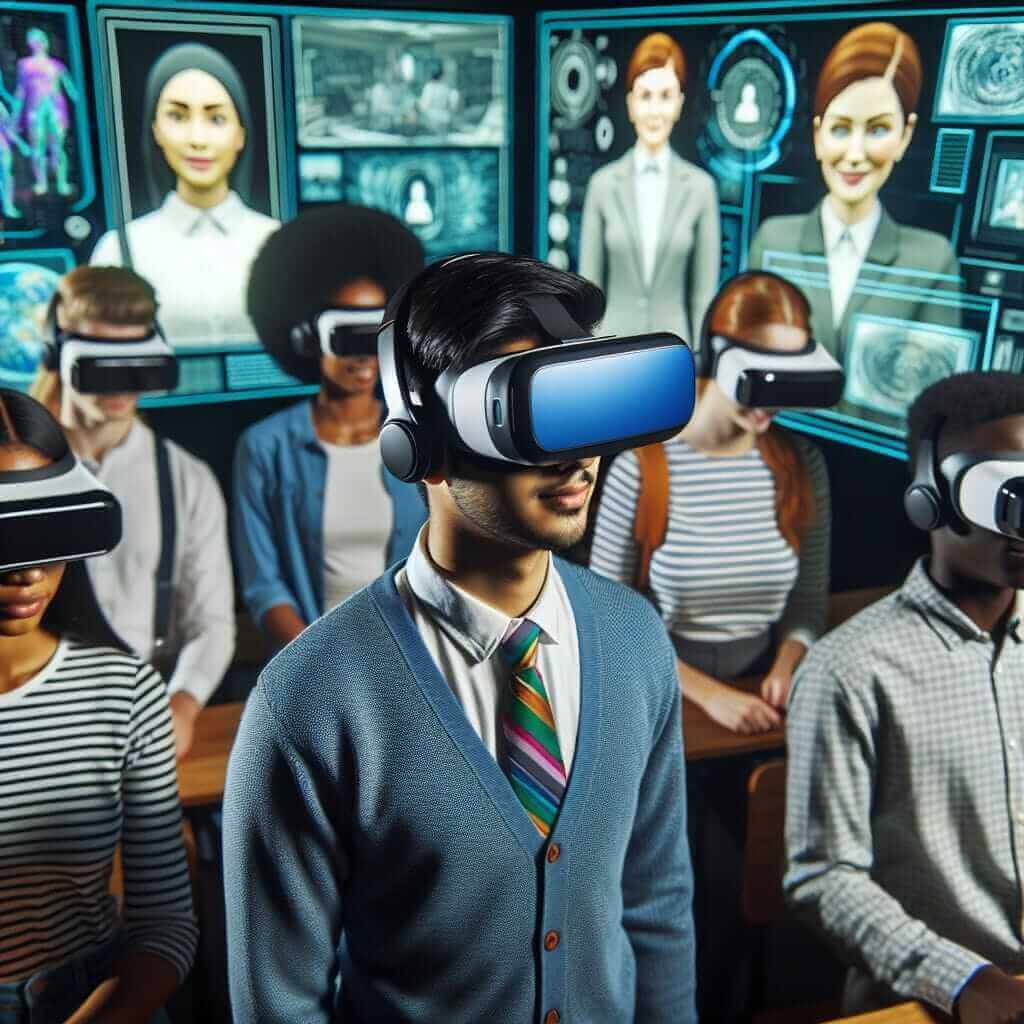The IELTS Reading section aims to assess a candidate’s reading comprehension abilities through various question types. Understanding how technology is transforming global education systems is a topic gaining increasing relevance today. Analyzing its prevalence in past IELTS exams can provide insight into the likelihood of encountering similar topics in future tests.
Main Content
IELTS Reading Practice: Technology Transforming Global Education Systems
Passage
The advent of technology has revolutionized sectors across the globe, and education is no exception. From kindergarten to university, education systems are being transformed to incorporate digital tools, ensuring that learning is more accessible, interactive, and personalized.
One of the significant changes brought about by technology is the accessibility of educational resources. Online platforms offer a plethora of learning materials, accessible to students from anywhere with an internet connection. This democratization of education means that students in remote areas can access the same quality of education as those in urban centers.
Interactive learning is another major benefit of technology in education. Tools such as virtual reality (VR) and augmented reality (AR) offer immersive learning experiences that traditional methods cannot match. For instance, students can take virtual field trips to historical sites or conduct virtual laboratory experiments, offering hands-on experience without leaving the classroom.

Personalization is also a key change driven by technology. Through the use of artificial intelligence (AI), educational programs can adapt to individual learning styles and paces. This ensures that students receive the support they need to understand complex topics effectively.
Moreover, technology has facilitated communication and collaboration among students and educators. Platforms such as video conferencing and online discussion forums allow for real-time interaction and feedback, creating a more engaging learning environment.
In essence, technology is not just an add-on to existing education systems but is redefining the fundamentals of how education is delivered and received. However, it is crucial to address the digital divide to ensure that all students benefit equally from these advancements.
Questions
Multiple Choice
-
What is one major benefit of technology in education?
A. Increased teacher workload
B. Ensuring learning is more interactive
C. Limiting access to resources
D. Reducing personalized learning -
Virtual Reality (VR) can be used in education to:
A. Replace traditional textbooks entirely
B. Offer immersive learning experiences
C. Increase physical classroom interactions
D. Standardize learning for all students
True/False/Not Given
-
Technology has made educational resources accessible only in urban areas. (True/False/Not Given)
-
Artificial Intelligence (AI) in education programs helps personalize learning. (True/False/Not Given)
Matching Headings
- Match each of the following headings with the paragraphs (A-E) from the passage:
A. Accessibility of resources
B. Interactive learning through VR and AR
C. Personalized education with AI
D. Communication and collaboration
Answer Key
- B. Ensuring learning is more interactive
- Explanation: The passage highlights that tools like VR and AR offer interactive learning experiences.
- B. Offer immersive learning experiences
- Explanation: VR allows students to take virtual field trips and conduct experiments, thus providing immersive experiences.
- False
- Explanation: The passage states that technology has democratized education, making resources accessible to students in remote areas.
- True
- Explanation: AI technology is mentioned as personalizing education to fit individual learning styles.
-
- Accessibility of resources: Paragraph 2
- Interactive learning through VR and AR: Paragraph 3
- Personalized education with AI: Paragraph 4
- Communication and collaboration: Paragraph 5
Common Mistakes to Avoid
- Misinterpreting the passage due to superficial reading.
- Failing to match headings accurately due to not understanding the gist of paragraphs.
- Incorrectly answering True/False/Not Given questions by assuming information not mentioned in the text.
Vocabulary
- Democratization /dɪˌmɒkrətaɪˈzeɪʃən/: the introduction of a democratic system or democratic principles.
- Immersive /ɪˈmɜːrsɪv/: providing, involving, or characterized by deep absorption or immersion in something.
- Artificial Intelligence /ˌɑːtɪˈfɪʃəl ɪnˌtɛlɪˈdʒɛns/: the simulation of human intelligence processes by machines.
Grammar Focus
- Using passive voice: The advent of technology has revolutionized sectors across the globe.
- Relative clauses: Students who have access to the internet can benefit from a wide range of resources.
Conclusion
To excel in the IELTS Reading section, consistent practice with sample passages and questions on contemporary topics such as technology in education is essential. Familiarizing yourself with common mistakes, vocabulary, and grammatical structures will enhance your comprehension and performance. Remember, understanding and interpreting the passage accurately is key to achieving a high score.